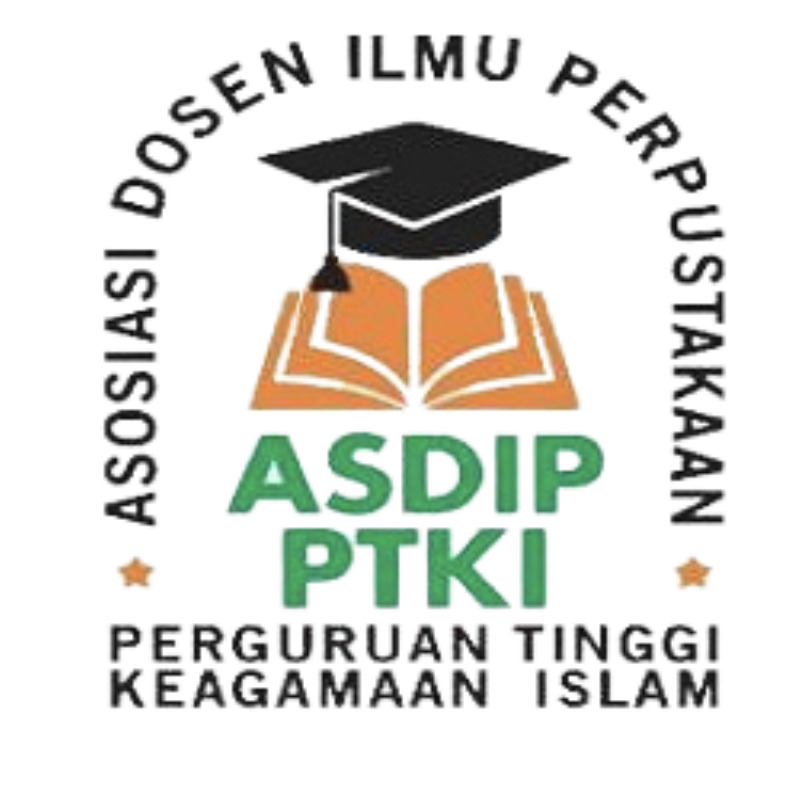Analisis Karakteristik Literasi Generasi Alpha Dan Implikasinya Terhadap Layanan Perpustakaan
DOI:
https://doi.org/10.29240/tik.v6i2.5134Keywords:
alpha generation, library services, alpha generation information needs.Abstract
The alpha generation has creative, passionate, dynamic, leadership, and confident characters in making future career decisions, inseparable from technology in completing their work. Technological developments and pandemic conditions drastically changed the values and concepts of the line of education in carrying out teaching and learning activities and in the transfer of information. In library services, for example, major changes are needed in managing and disseminating information to respond to these conditions. This is to provide a balance in adjusting the style and character of the alpha generation in obtaining information. The purpose of this study is to analyze the character of the alpha generation so as to find patterns of information needs. In addition, it aims to determine the implications for library services. In this study, the study used was a literature study. From the description of the analysis that has been carried out, it can be concluded that the alpha generation is a multitasking generation, digital native, does not like rules, is creative, and flexible, connects, and collaborates as well as practicum. While the context of the information needs of the alpha generation tends towards information in digital formats and direct, applicable and easy information to be directly shared through social media. The implications of library services are expected to adjust the pattern of service performance to meet the information needs of the alpha generation including: changes in expectations of access to library information services that focus on idealistic and fast and sophisticated personal convenience, readiness for data appearance that is ready to share or share data directly, use of social media for promotion and communication lines across generations, the competence of librarians as professional data analysts is not only managing and maintaining but also participating in generating and repackaging information.
Downloads
References
Ali, I. (2019). Prediksi Pengelolaan Perpustakaan Di Era Pascamillenials. Jurnal IPI (Ikatan Pustakawan Indonesia), 4(1), 58–68. https://jurnal.ipi.web.id/jurnalipi/article/view/80%0Ahttps://jurnal.ipi.web.id/jurnalipi/article/download/80/48
Apriani, A., & Sari, I. P. (2020). Penguatan Karakter Nasionalisme Generasi Alphamelalui Living Values Education Program (LVEP). LITERASI (Jurnal Ilmu Pendidikan), 11(2), 67. https://doi.org/10.21927/literasi.2020.11(2).67-79
Fadlurrohim, I., Husein, A., Yulia, L., Wibowo, H., & Raharjo, S. T. (2020). Memahami Perkembangan Anak Generasi Alfa Di Era Industri 4.0. Focus : Jurnal Pekerjaan Sosial, 2(2), 178. https://doi.org/10.24198/focus.v2i2.26235
Generasi, Z., & Industri, R. (n.d.). 25. Generasi Z Revolusi Industri 4.0 by Hadion Wijoyo, S.E., S.H., S.Sos., S.Pd., M.H., M.M., Ak., CA., QWP®, Dr. (C). Irjus Indrawan, S.Pd.I., M.Pd.I., Dr. (C) Yoyok Cahyono, S.E., M.M., CAP., Agus Leo (z-lib.org).pdf.
Industri, R., & Masyarakat, M. (2021). Revolusi industri 4.0 menuju masyarakat 5.0.
Lubis, B., Sos, S., Si, M., Mulianingsih, S., Pd, S., & Pd, M. (2019). Keterkaitan Bonus Demografi Dengan Teori Generasi. Jurnal Registratie, 1(1), 21–36. http://ejournal.ipdn.ac.id/jurnalregistratie/article/view/830
Novianti, R., Maria, I., & Riau, U. (2019). GENERASI ALPHA-TUMBUH DENGAN GADGET DALAM GENGGAMAN Prodi PG PAUD FKIP. Pendidikan & Sosial, 8(2), 65–70.
Prasetyo, A. A. (2019). Dampak Era Digital Terhadap Perpustakaan Sebagai Upaya Menarik Generasi Milenial. Tibanndaru : Jurnal Ilmu Perpustakaan Dan Informasi, 3(2), 1. https://doi.org/10.30742/tb.v3i2.761
Reis, T. A. dos. (2018). Study on the Alpha Generation and The Reflections of its Behavior in the Organizational Environment. Quest Journals: Journal of Research in Humanities and Social Science, 6(1), 9–19. http://www.questjournals.org/jrhss/papers/vol6-issue1/C610919.pdf
Swandhina, M. (2022). GENERASI ALPHA : SAATNYA ANAK USIA DINI MELEK DIGITAL Refleksi Proses Pembelajaran Dimasa Pandemi Covid-19. Jurnal Edukasi Sebelas April (JESA), 6(1), 150. https://ejournal.unsap.ac.id/index.php/jesa
Umum, P., Malang, K., Magdalena, S., Tulistyantoro, L., Mulyono, H., Studi, P., Interior, D., Petra, U. K., & Siwalankerto, J. (2019). Implementasi Konsep Hybrid Library Pada. 7(2), 258–265.
Wijonarko, W. (2020). How To Improve Librarians Professionality in Era O F Society 5.0? Indonesian Journal of Librarianship, 45363, 54–65. https://doi.org/10.33701/ijolib.v1i1.1050
Ziatdinov, R., & Cilliers, J. (2021). Generation Alpha: Understanding the Next Cohort of University Students. European Journal of Contemporary Education, 10(3), 783–789. https://doi.org/10.13187/ejced.2021.3.783
Downloads
Published
Issue
Section
Citation Check
License
Authors who publish with Tik Ilmeu : Jurnal Ilmu Perpustakaan dan Informasi agree to the following terms:
- Authors retain copyright and grant the journal right of first publication with the work simultaneously licensed under a Creative Commons Attribution-NonCommercial-ShareAlike 4.0 International License (CC BY-NC-SA 4.0) that allows others to share the work with an acknowledgment of the work's authorship and initial publication in this journal.
- Authors are able to enter into separate, additional contractual arrangements for the non-exclusive distribution of the journal's published version of the work (e.g., post it to an institutional repository or publish it in a book), with an acknowledgment of its initial publication in this journal.
- Authors are permitted and encouraged to post their work online (e.g., in institutional repositories or on their website) prior to and during the submission process, as it can lead to productive exchanges, as well as earlier and greater citation of published work (See The Effect of Open Access).







 This work is licensed under a
This work is licensed under a 